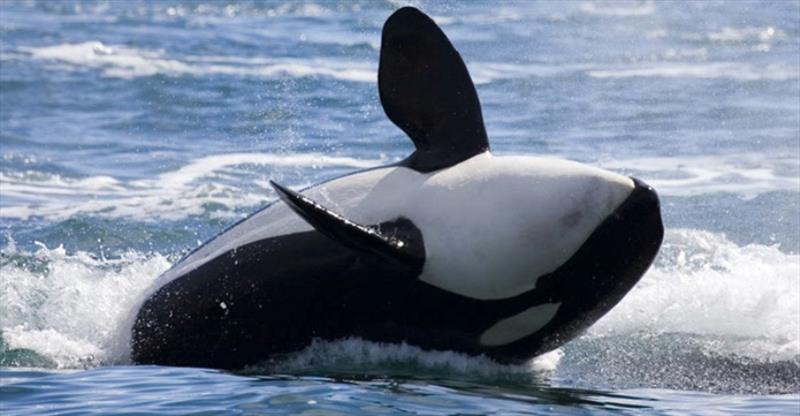
Operation Virus Hunter: For salmon farm research
by Sea Shepherd Conservation Society 31 Jul 2019 13:52 UTC

Operation Virus Hunter © Sea Shepherd Conservation Society
The crew aboard the R/V Martin Sheen are working alongside scientists and the Tla-o-qui-aht First Nation on Operation Virus Hunter. They continue to investigate and eradicate open-net salmon farms in the waters of British Columbia.
These farms were introduced into the waters near Tofino, B.C. several decades ago. Since then, local wild Chinook salmon populations have rapidly declined due to sea lice infestations as well as Piscine Orthoreovirus (PRV) - a virus known to cause inflammatory disease in Atlantic salmon. This population decline has caused a ripple effect, threatening the surrounding ecosystems and communities that rely on this keystone species.
Southern resident orcas depend primarily on Chinook salmon for food and researchers believe dwindling stocks of the fish are a key factor behind the decline of this endangered population. In 1995, the population had reached a peak size of 98 individuals. As a result of the decline in chinook salmon, the population has now dropped to only 76 individuals, with less than 30 effective breeding members. Of the six babies that were born in December 2014 through 2016, three died. Not a single baby born in 2017 survived. Scientists predict that this population will go extinct if we do not take immediate action.
As salmon farms continue to leech parasites, pathogens, and pesticides, neither prey, nor predator stands a chance at survival. The easiest solution to restoring wild salmon populations and the species that depend on them for survival is to simply get fish farms out of our oceans. Sea Shepherd is dedicated to assisting First Nation members, scientists, and local community groups in gathering scientific evidence that proves the fish farm's harmful consequences on this extraordinary ecosystem.